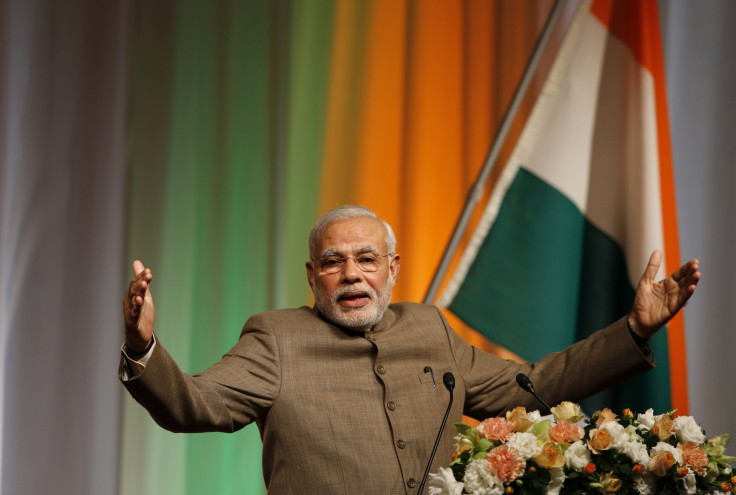India Allows Foreign Investors To Increase Stake In Domestic Insurance Companies As Modi Pushes Reforms

The Narendra Modi-led Bharatiya Janata Party (BJP) government on Wednesday sought to push ahead with economic reforms as it brought an ordinance or executive order to clear a proposal to allow 49 percent foreign direct investment in domestic insurance companies, skirting the parliament, at least temporarily.
At present, India allows local insurance companies to have foreign partners whose stake is capped at 26 percent. The move to increase foreign equity participation to 49 percent in the insurance sector could potentially infuse new vigor in an otherwise funds-starved sector. Although a select parliamentary panel had cleared the insurance bill earlier this month, the government could not clear it through the upper house after opposition parties stalled proceedings over an unrelated issue about religious conversions. A similar ordinance was passed to allow the government to start auctioning off coal fields to manufacturing companies.
"The ordinances demonstrate the firm commitment and the determination of this government to reform. It also announces to the rest of the world including investors that this country can no longer wait even if one of the houses of parliament waits indefinitely to take up its agenda," the Business Standard newspaper quoted India’s Finance Minister Arun Jaitley as saying.
While the size of the insurance sector in India is about $66 billion, it is projected to be worth nearly $400 billion by the end of the decade. Of the 52 companies offering insurance products in India, only 24 offer life insurance, and according to an estimate from the India Brand Equity Foundation, India has the world's largest life insurance sector with about 360 million life insurance policies. Yet, insurance penetration in India remains abysmally low.
“Currently, the general insurance penetration in India is only 0.8 percent and life is 3.2 percent of GDP (gross domestic product)," according to a report from KPMG, an audit firm, which added that per capita expenditure on life and general insurance was only $43 and US$11 respectively, which is significantly lower than prevalent rates in other Asian countries.
In keeping with Modi's campaign-trail promise of reforms, the government on Wednesday also issued an ordinance, which asks the country’s president to yet again announce a rule that would allow the government to kickstart the process of auctioning off coal fields for captive use to downstream power, cement and steel companies, and to eventually throw open the sector to private and foreign investment. The president is bound by the nation's constitution to accept the government's decision.
An alleged scam in the allocation of coalfields for captive use to manufacturing companies saw as many as 214 coalfields being given out to private and state-controlled companies at virtually no upfront cost on a first-come, first-served basis between 1993 and 2010. A bulk of these coalfields was allocated during Manmohan Singh's tenure as prime minister in the previous Congress party-led administration.
Now, India plans to auction 204 of these coalfields, which had been taken back following a Supreme Court order in September that declared the earlier allocations illegal. In September 2012, the country’s Comptroller and Auditor General had said in a report that because the coalfields were given away without an auction, companies got away with “windfall gains” to the tune of 1.86 trillion rupees (nearly $30 billion). Following this, a federal investigation was ordered, which the Supreme Court later began monitoring.
Although the Modi government had sought to get these reforms passed via the legislative route, it could not do so in the just concluded parliament session, as the opposition, led by the Congress party, stalled both the lower and the upper houses opposing the government on various domestic issues, most notably that of "re-conversions." India’s opposition parties have been vehemently opposing moves by some right-wing BJP leaders, including members of parliament, to ‘re-convert’ thousands of Muslims and Christians back to Hinduism. Although India has a majority Hindu population, its constitution defines it as a secular nation that guarantees equal rights and freedoms to people of all religions.
While Modi’s BJP enjoys a comfortable majority in the lower house, it is in a minority in the upper house and requires the support of opposition parties to get bills passed.
Typically, the ordinance route is used in an emergency situation when the government thinks it cannot wait for a parliament session to enforce a law. To be sure, the government will again have to bring both these executive orders before parliament and get them passed in the next session, sometime in February. The Modi government is also expected to present its first annual federal budget to the parliament at the time.
© Copyright IBTimes 2024. All rights reserved.




















